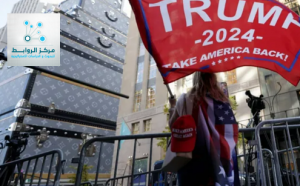By: Shatha Kalel
With Donald Trump’s potential return to the White House, concerns are growing about how his trade policies might impact the global economy. His previous presidency was marked by firm policies, including tariffs on many imports and a strong focus on supporting American industry. In this article, we explore whether a renewed Trump presidency could lead to a new global trade war and examine the potential economic implications.
1. The Potential for Renewed Tariffs
Trump’s economic policies are known for their protectionist approach. He previously imposed tariffs on key imports from countries like China and the European Union. If re-elected, he might reimpose or even escalate these tariffs to protect American industries, particularly in manufacturing and technology. However, this approach could provoke retaliatory responses from other countries, sparking a full-blown trade war and disrupting global trade.
Economic Impact: Escalated tariffs would increase production costs for companies relying on imported materials, leading to higher consumer prices. In the U.S., this could result in inflation, as businesses pass these costs to consumers. Additionally, countries exporting to the U.S. may experience reduced demand, negatively impacting their economies.
2. Tensions with China and Impact on Global Supply Chains
During Trump’s previous presidency, he ignited a trade war with China, imposing significant tariffs that strained global supply chains. A second Trump term could renew these tensions, potentially disrupting trade flows between the world’s two largest economies.
Economic Impact: A renewed trade war with China could cause further disruption in global supply chains, especially in electronics, pharmaceuticals, and automotive manufacturing. Multinational companies that rely on Chinese production might reconsider their supply chains and accelerate plans to shift to other countries, like Vietnam, Mexico, or India.
3. Effects on Emerging Economies
Trump’s policies could also impact emerging markets that rely heavily on trade with both the U.S. and China. Countries caught between these two superpowers could face significant economic volatility, especially in Asia and Latin America.
Economic Impact: Increased tariffs could reduce demand for exports from these economies, affecting employment and economic growth. Furthermore, countries heavily reliant on exporting raw materials to China could see downturns if the Chinese economy slows due to U.S. trade barriers.
4. Domestic Economic Impact in the U.S.
Trump’s trade policies are designed to protect American industries and boost domestic jobs. However, the actual impact of these protectionist measures is mixed. While tariffs might protect some industries from foreign competition, they can also drive up costs for businesses and consumers.
Economic Impact: Higher import costs can contribute to inflation, especially for goods that the U.S. cannot efficiently produce domestically. For example, tariffs on steel or electronic components could increase prices for automobiles and tech products, creating price pressures across various sectors. Local production may not fully cover demand, forcing some sectors to rely on costly alternatives.
5. Impact on Multinational Corporations
Trump’s trade policies could have far-reaching consequences for multinational corporations. Companies operating across multiple countries could face complex regulatory environments and fluctuating tariffs, particularly in industries like automotive, consumer electronics, and pharmaceuticals.
Economic Impact: Multinational companies might have to restructure supply chains, which could increase operating costs. Some companies may relocate production closer to primary markets, creating jobs in some countries while reducing investments in others. However, these shifts require significant capital and time, causing financial pressure in the short to medium term.
6. Financial Market Reactions
Financial markets are highly sensitive to political developments and potential trade policy changes. A Trump victory could lead to uncertainty, especially with new trade barriers or tariffs. This could trigger caution among investors and heighten market volatility.
Economic Impact: Stock markets could experience increased volatility, especially in sectors directly affected by trade policies, like technology, consumer goods, and automotive industries. Additionally, the U.S. dollar might strengthen as a safe-haven currency amid global uncertainty, making exports more expensive and potentially widening the trade deficit.
Conclusion: Preparing for a Potential Trade War
If Trump were to return to the White House, the probability of intensified global trade tensions would remain high. His administration might reimpose tariffs and renegotiate trade agreements, setting off a chain reaction of retaliatory measures from other countries. The consequences of such policies would likely disrupt global markets, affecting trade flows, supply chains, and prices. For governments and businesses, preparing for these potential shifts—through diversification, reshoring, and building supply chain resilience—would be essential to mitigate the impact of any future trade conflicts.
Economic Unit/North America Office
Al Rawabet Center for Research and Strategic Studies

